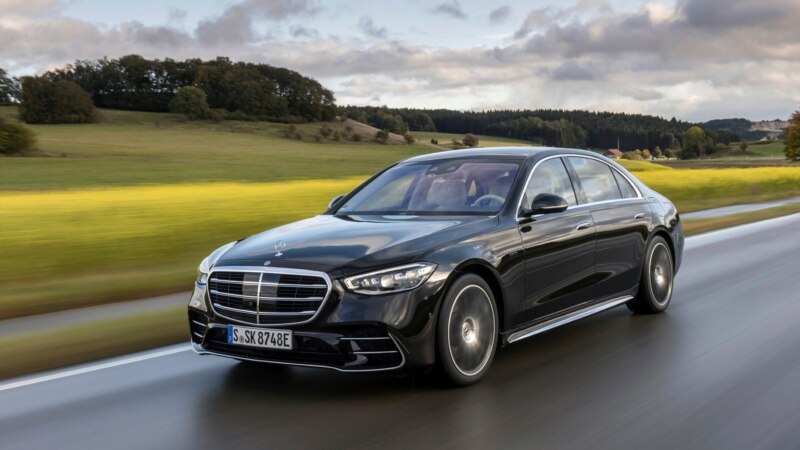
German automaker Mercedes-Benz is launching an investigation into how its high-end vehicles have turned up in North Korea despite sanctions that ban the export of luxury goods to the country.
Mercedes-Benz headquarters in Stuttgart, Germany, sent a statement to VOA’s Korean Service on Wednesday that the company “has had no business connection with North Korea for far more than 15 years” and does not know how its vehicles “have come to the use of the government of North Korea.”
The statement continued, “To prevent deliveries to North Korea, Mercedes-Benz has implemented a comprehensive export control process” and “strictly complies with U.S. and E.U. embargoes.”
The statement added the company always investigates the vehicles displayed in the media photos “thoroughly,” but “without the vehicle identification numbers, it is impossible to find a concrete trace.”
Kim known for giving Mercedes
North Korea’s state-run KCNA released on December 27 footage of several senior officials each arriving in a Mercedes-Benz S-class sedan to attend a year-end meeting of the ruling Workers’ Party held the previous day. North Korean Premier Kim Tok Hun arrived at the event in a Mercedes-Benz S-class limousine.
The price tag of the Mercedes-Benz S-class sedan starts at $114,500, according to the company’s website.
North Korean leader Kim Jong Un is known for gifting Mercedes-Benzes to officials loyal to him.
Kim himself has been spotted several times in the past in a Mercedes Maybach, which can cost from around $500,000 to over $1.5 million. He is believed to have brought a Maybach onboard an armored train when he traveled to Russia to meet with President Vladimir Putin in September.
Joshua Stanton, an attorney based in Washington who helped draft the Sanctions Enforcement and Policy Enforcement Act in 2016, said North Korea seems to have deliberately released the video.
“They do like to flaunt” luxury vehicles and “to demonstrate that the sanctions don’t have effects on them,” Stanton said.
He said Mercedes-Benz should give its “full cooperation to the U.N. Panel of Experts” so that the experts “can trace the suppliers of the vehicles to North Korea.”
He added, “People who knowingly dealt with Pyongyang in violation of U.N. sanctions should be added to the list of specially designated nationals” and “their assets should be frozen.”
Ban passed in 2006
The U.N. Security Council passed a resolution in 2006 prohibiting its member states from exporting luxury items to North Korea and expanded the ban in a resolution passed in 2013. The U.N. Panel of Experts on North Korea monitors whether U.N. sanctions are being enforced on the country.
“Kim Jong Un does not hide North Korea’s sanctions violations because Kim knows that the Biden administration is not implementing U.N. and U.S. sanctions,” said Anthony Ruggiero, senior fellow and sanctions expert at the Foundation for Defense of Democracies who served as the National Security Council senior director of counterproliferation and biodefense in 2020-2021.
“The Biden administration should immediately implement U.S. sanctions, including on Chinese and Russian banks, companies, and individuals engaged in North Korea sanctions evasion,” he said.
In response to the footage of North Korean officials arriving in Mercedes-Benz vehicles, a spokesperson for the U.S. State Department told VOA’s Korean Service on December 27 that U.N. member states need to enforce sanctions placed on North Korea.
“Under U.N. Security Council resolutions, all U.N. Member states are required to prohibit the supply, sale or transfer to the DPRK of transportation vehicles,” the spokesperson said.
In December, police in Japan raided a car dealership in Chiba, a city 30 kilometers (18.6 miles) outside Tokyo, suspected of trying to smuggle a Lexus worth about $70,000 into North Korea via Bangladesh, according to The Asahi Shimbun, a Japanese newspaper that first reported the incident.
A report by the Center for Advanced Defense Studies said in 2019 that as many as 90 countries were involved in sending luxury goods to North Korea between 2015 and 2017.
The report said it found unreported shipments of more than 800 luxury vehicles sent to North Korea. Those automobiles were sent from Germany, the Netherlands and Thailand and transshipped through China, Japan, South Korea and Russia before entering North Korea, the report added.
